You are here
New Releases
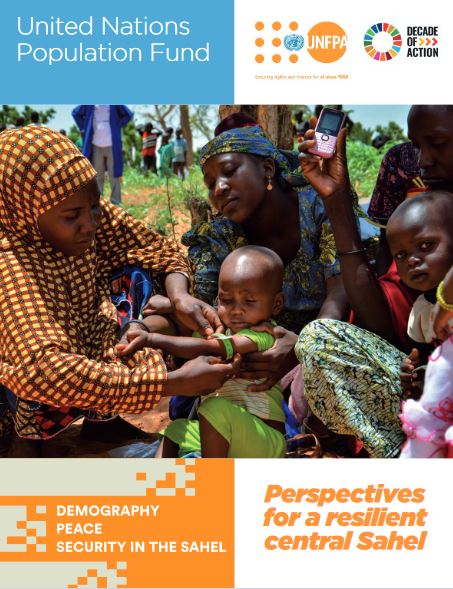
Perspectives for a resilient central #Sahel
A pessimist outcome is not inevitable in the Sahel. It is always possible to overcome even the most complex crises and situations. Since ‑‑, the Sahel has been plagued by multifaceted crises that have plunged its people into situations of distress. In the face of this emergency, states and civil society organisations are in a race against time. To change the situation and give the region lasting momentum, studies and research papers recommend that decision makers act on the structural factors that sustain fragility in the Sahel. These includethe central mechanisms linking demography, security and peace.
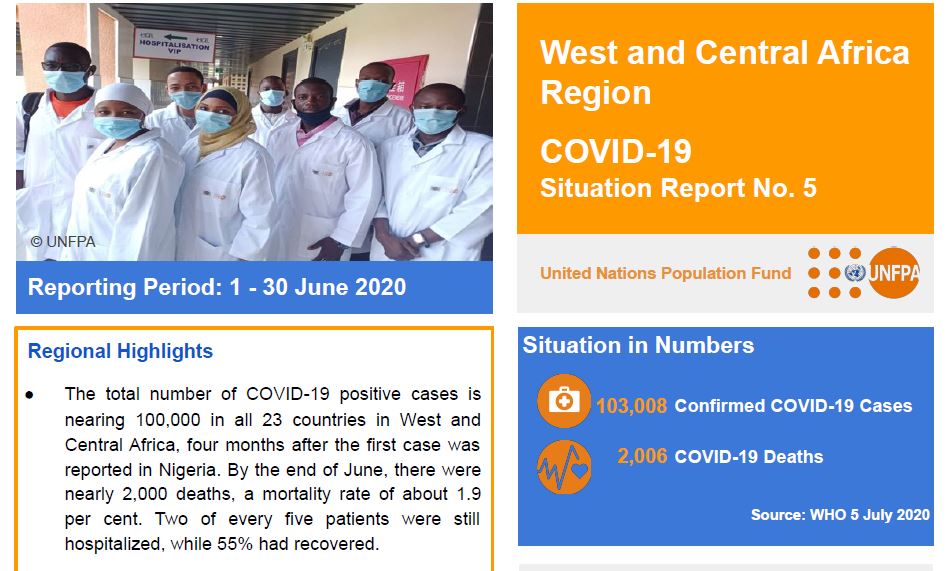
WCARO COVID-19 SitRep #5
The UNFPA response in the region aligns with the 2030 Agenda, WHO global strategic preparedness and response
plan, UN-coordinated global humanitarian response plan, the UN framework for socio-economic response to
COVID-19, and the UNFPA COVID-19 global response plan.
UNFPA chaired its last weekly meeting of the Regional UN Sustainable Development Group for West and Central
Africa. The UN Human Rights Office now chairs the weekly meetings of the Regional Directors Group aimed at
coordinating UN response to the pandemic. The health, humanitarian and socio-economic challenges, brought about
by the pandemic, require solidarity for a global response.
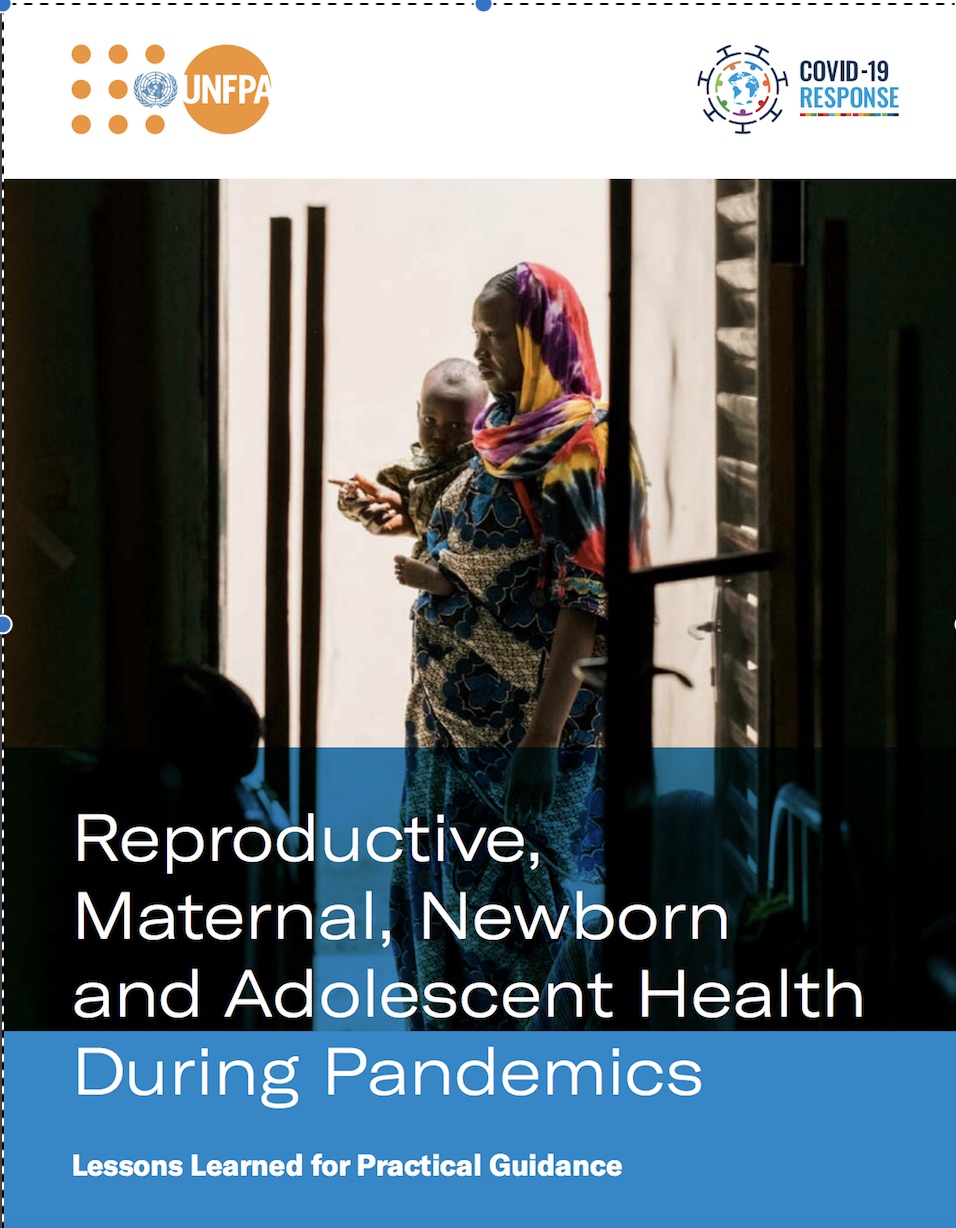
Reproductive, Maternal, Newborn and Adolescent Health During Pandemics Lessons Learned for Practical Guidance
The United Nations Population Fund for West and Central Africa Regional Office (UNFPA WCARO) commissioned a review of responses to major epidemics. The study examined major epidemics since 2003, including SARS-CoV, HIV/AIDS, Ebola, Zika and MERS-CoV. Often, responses to such outbreaks have hurt maternal, reproductive and child health services. Recognising the extent to which epidemics affect women, children, and other vulnerable populations are crucial if nations are to create effective and fair responses.
UNFPA Supplies and the French Muskoka Fund supported the review process and this report.
West and Central Africa Region COVID-19 Situation Report No. 3
West and Central Africa Region
COVID-19 Situation Report No. 3
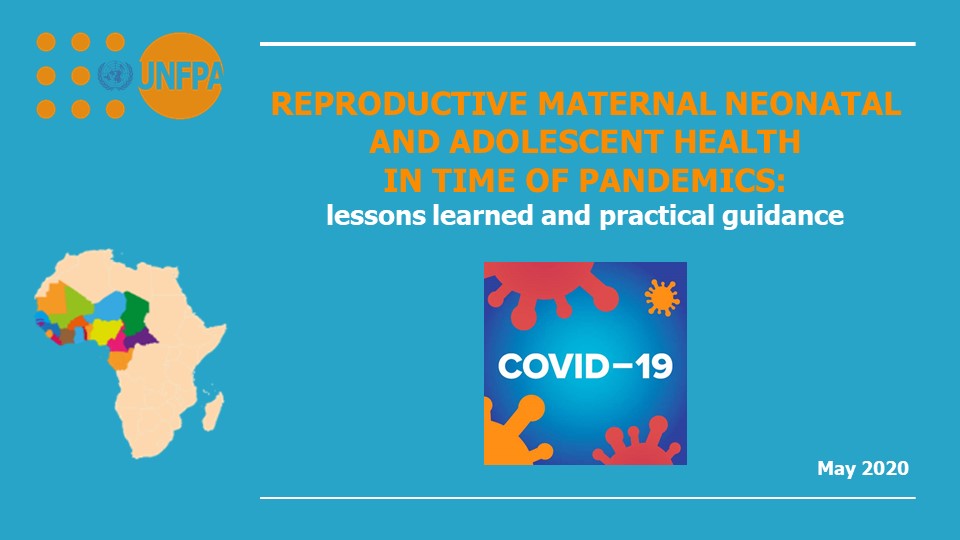
Reproductive maternal neonatal and adolescent health in time of pandemics: lessons learned and practical guidance
The review draws out lessons learned from 20 years of major epidemics since 2003, including SARS-CoV, HIV/AIDS, Ebola, Zika and MERS-CoV. The findings noted that responses to such outbreaks had hurt maternal, reproductive and child health services. Recognising how, and how much, epidemics affect women, children, and other vulnerable populations is crucial if nations are to create effective and fair responses
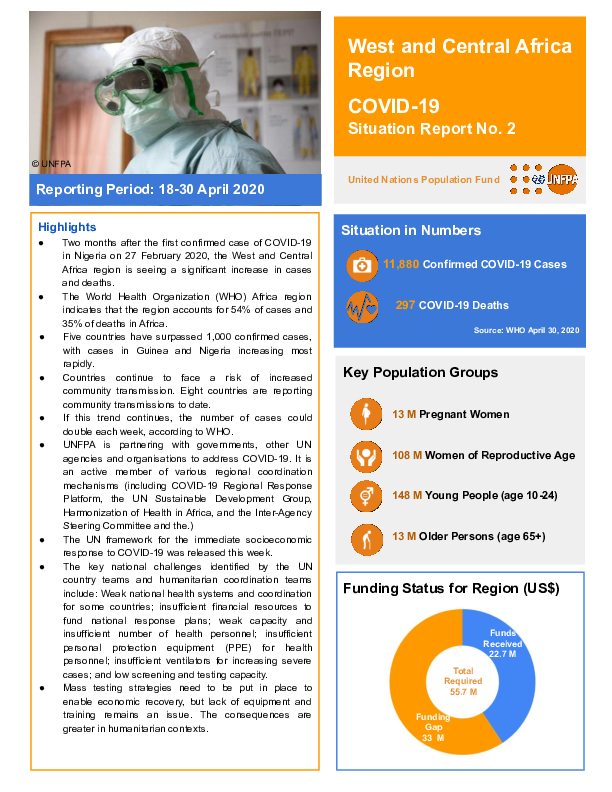
COVID-19 Situation Report No. 2 for UNFPA West and Central Africa
"The UNFPA response in the region aligns with the UN framework for the immediate socioeconomic response to COVID-19, the 2030 Agenda, the 2020 WHO Global Strategic Preparedness and Response Plan, the Inter-Agency Standing Committee Global Humanitarian Response Plan and the UNFPA COVID-19 Global Response Plan."
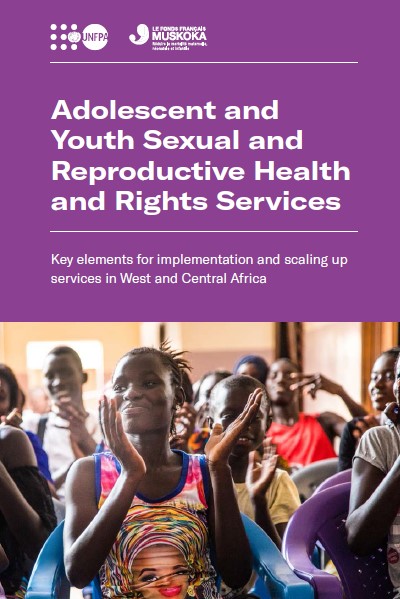
Adolescent and Youth Sexual and Reproductive Health and Rights Services
In West and Central Africa, 64 per cent of the population is below the age of 24 years.1 If this population were educated, healthy and employed, the region could benefit from the demographic dividend. However, one of the major obstacles to capturing the demographic dividend is the sexual and reproductive health and rights (SRHR) of adolescents and youth2 in the region, which is characterized by high rates of adolescent pregnancies and a high proportion of unmet family planning needs.
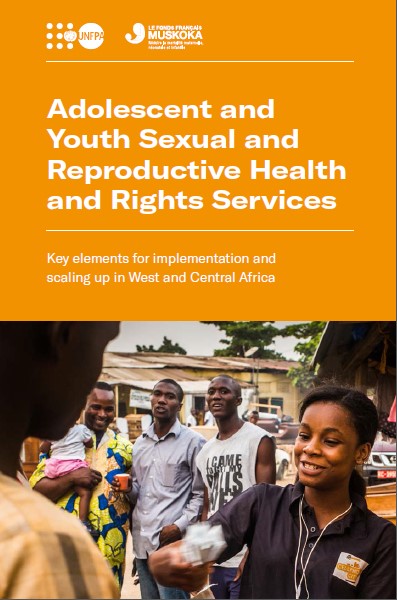
Adolescent and Youth Sexual and Reproductive Health and Rights Services
This regional report entitled “Adolescent and Youth Sexual and Reproductive Health and Rights Services - Key elements for implementation and scaling up in West and Central Africa” is complementary to the previous regional report on Comprehensive Sexuality Education (CSE) and documents, through concrete examples from four West African countries (Benin, Côte d’Ivoire, Senegal and Togo), highlighting promising practices, lessons learnt, and proposing key recommendations to be shared with all countries in the region.
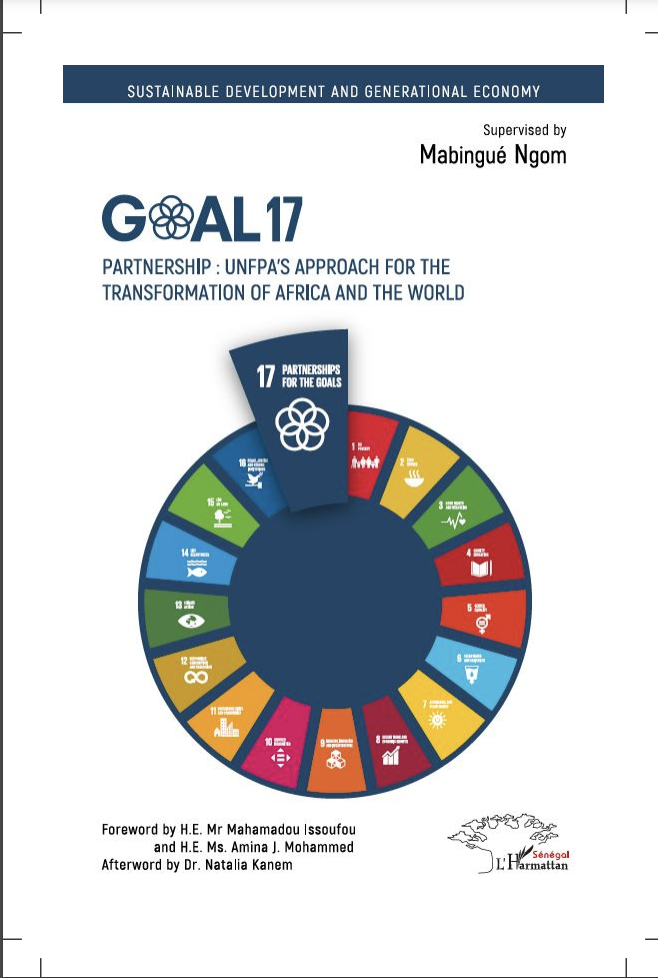
Goal17: Partnership: UNFPA'S Approach for the transformation of Africa and the World
This publication, “GOAL 17: Partnership: UNFPA’s approach for the transformation of Africa and the world,” details UNFPA’s strategy. It aims to draw on the regional office’s experience and to highlight the various dimensions of partnership, to show how this can be a successful strategy. In its 50 years of work, UNFPA, which has always considered partnership to be a lever for strategic action, has learned great lessons. For example, in 2013, UNFPA committed to promoting South-South cooperation to achieve the MDGs.11 Poor performance in West and Central Africa led UNFPA to focus on developing partnerships to accelerate progress, even before the adoption of the SDGs in 2015.
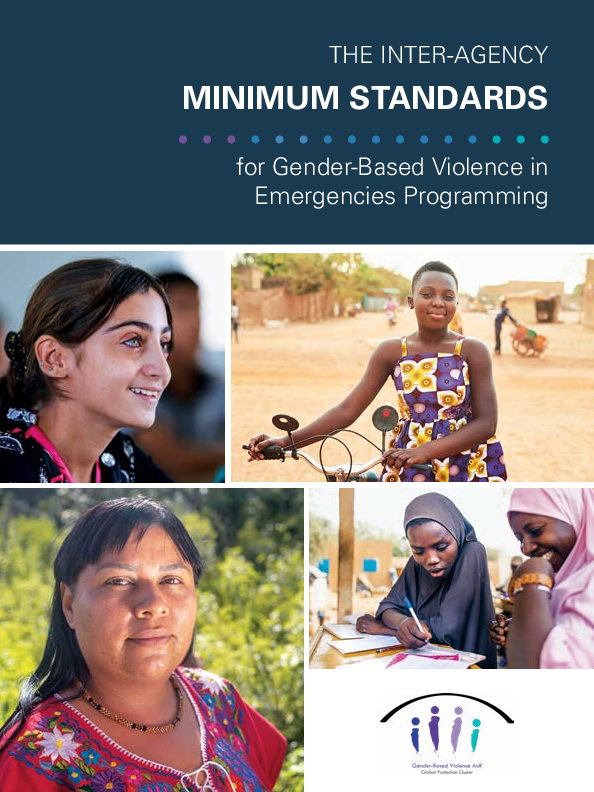
The Inter-Agency Minimum Standards for Gender-Based Violence in Emergencies Programming
Gender-based violence is a horrifying reality and human rights violation for women and girls globally. During emergencies, the risk of violence, exploitation and abuse is heightened. Humanitarian actors have an ethical imperative to prevent and respond to gender-based violence.
This resource presents 16 Minimum Standards for the prevention of and response to gender-based violence in emergencies. As a whole, the 16 Minimum Standards define what agencies working on specialized gender-based violence programming need to achieve to prevent and respond to gender-based violence, and deliver multisectoral services. The objective of the Minimum Standards is to establish a common understanding of what constitutes minimum prevention and response programming in emergencies.
Each Standard in this resource represents common agreement on what needs to be achieved for that specific programmatic element to be of adequate quality. The standards are universal; they are relevant for all emergency contexts.